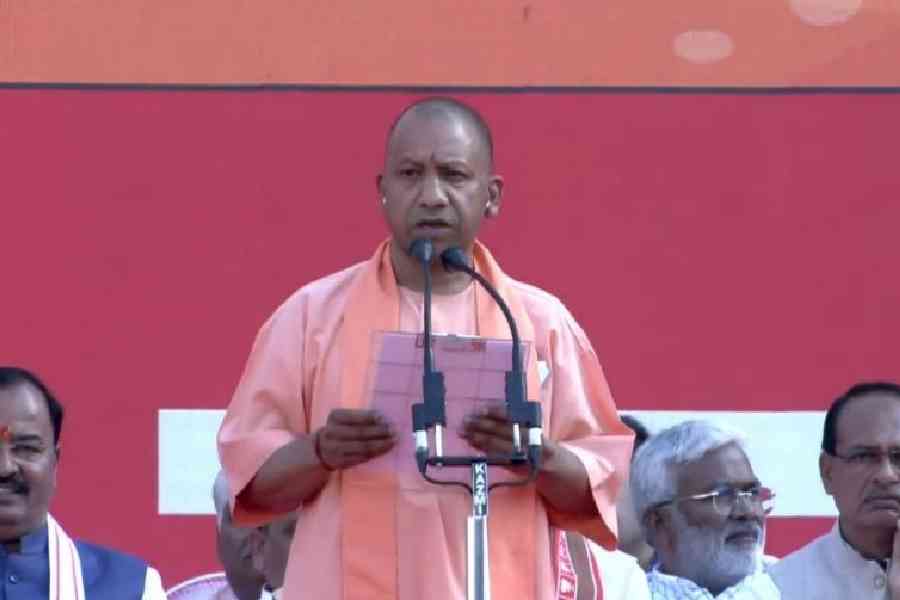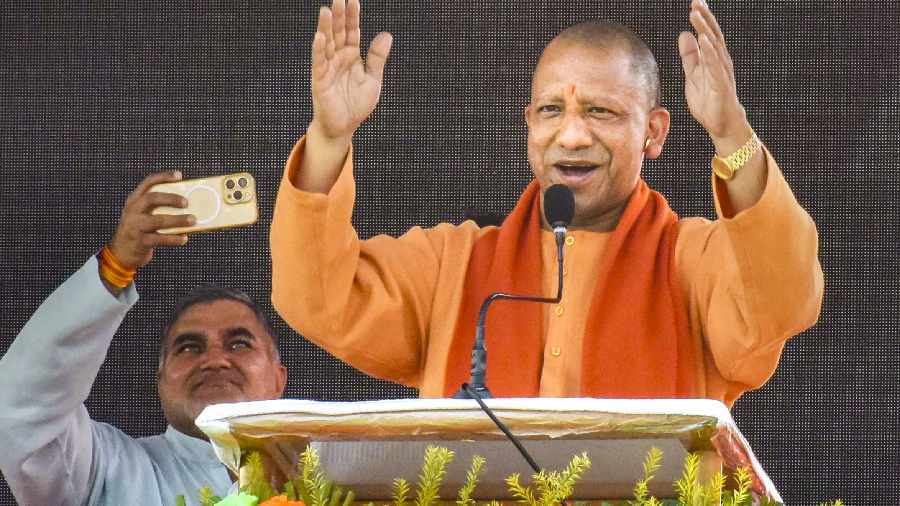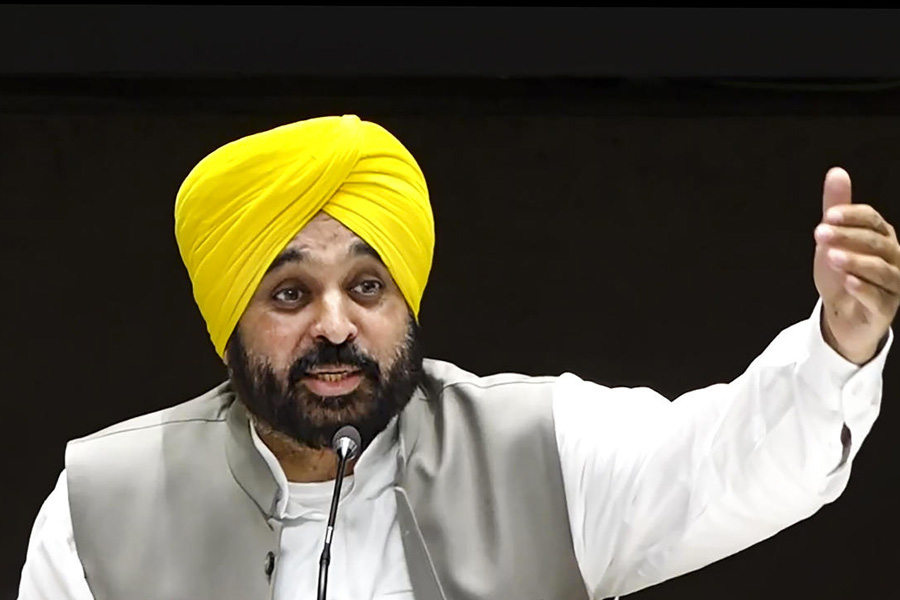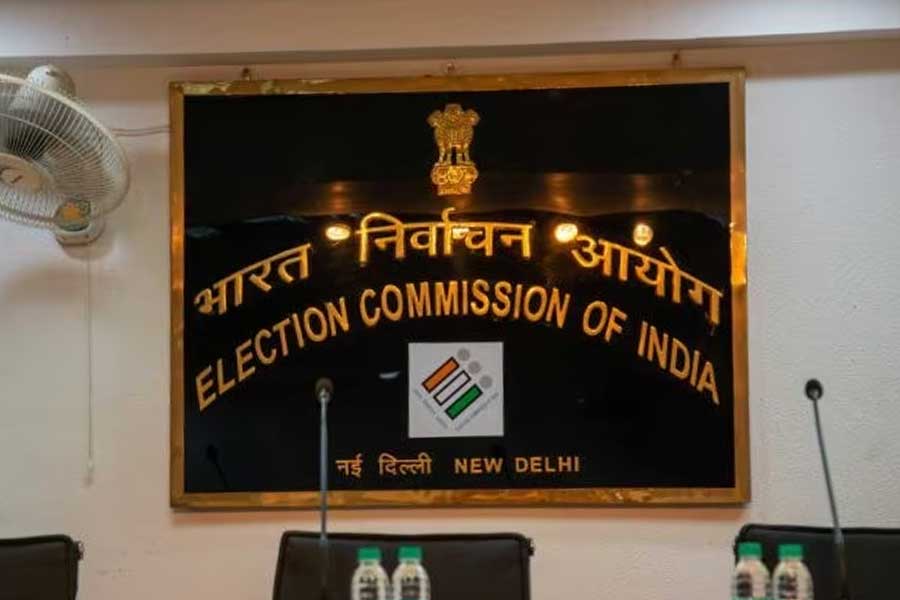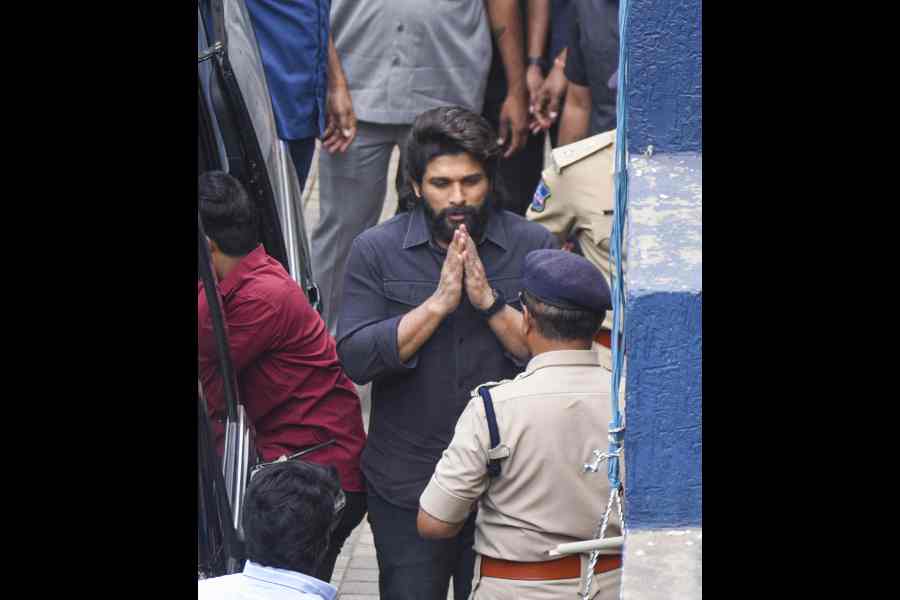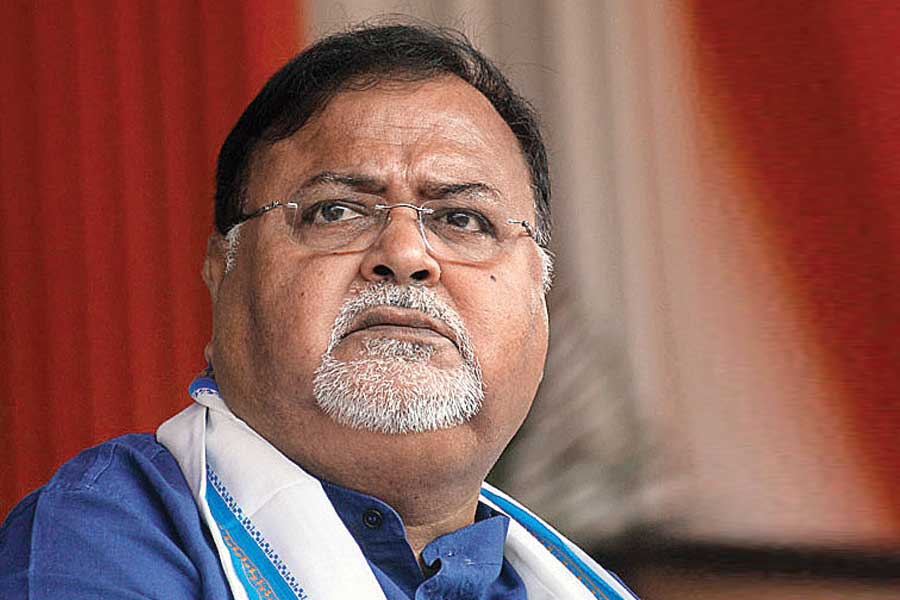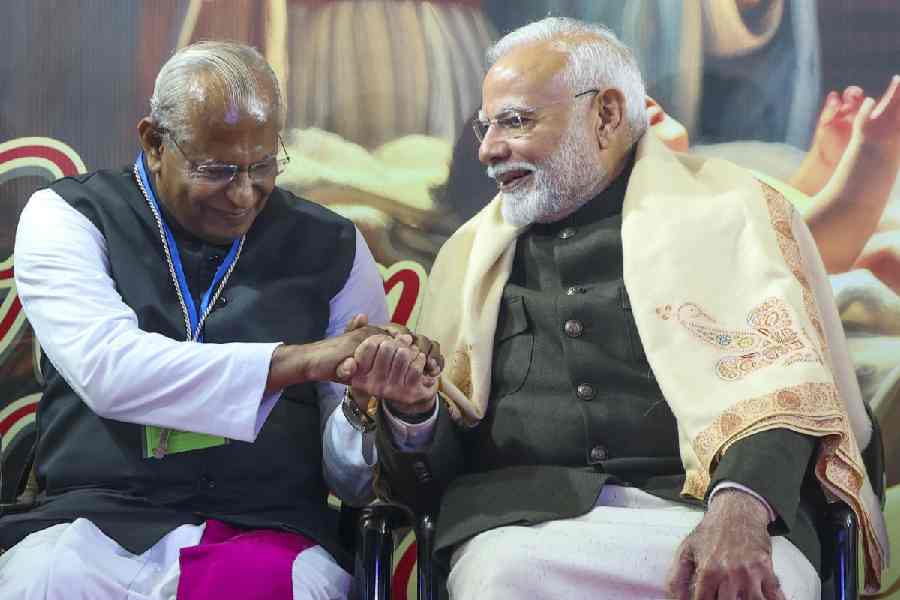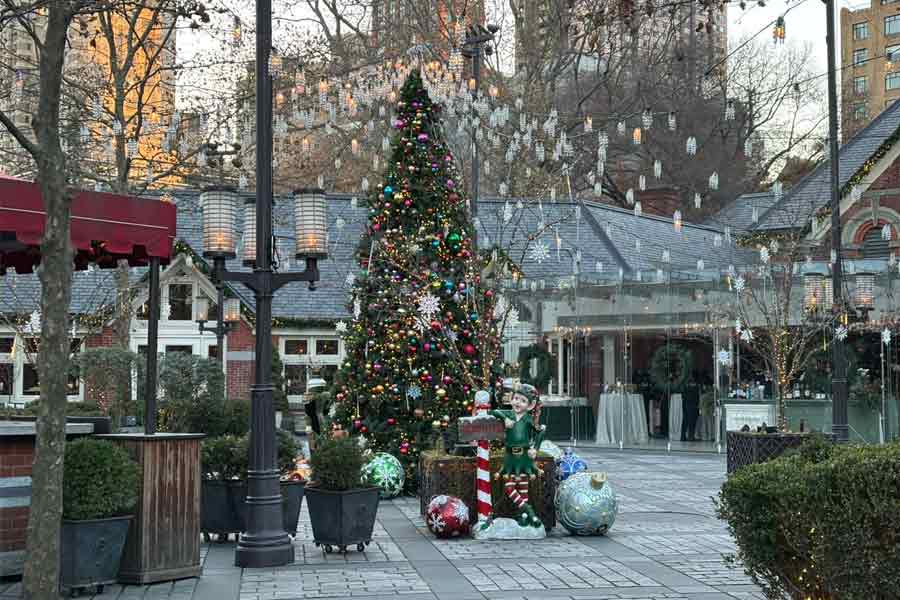Uttar Pradesh chief minister Yogi Adityanath on Saturday asked the “rashtravadi samaj” (nationalist society) to defeat “supporters of the People’s Front of India” by chanting pro-Bajrangbali slogans and “Har Har Mahadev”, implicitly defining the Karnataka election as a Hindu-Muslim clash.
The People’s Front of India (PFI), a predominantly Muslim group, was banned last September on the grounds of terrorism and other charges.
“Those who don’t like the concept of Ek Bharat Shreshth Bharat (One India Best India) want to free the PFI to undertake antisocial and anti-national activities and ban the followers of Lord Hanuman, the Bajrang Dal, which is committed to nationalism and is famous throughout the world for social service,” Adityanath told a rally at Koppa in Chikkamagaluru.
If Adityanath was insinuating that the Congress wants to “free” the PFI from the ban, he could be accused of misrepresenting facts. The Congress has in its election manifesto for Karnataka promised to ban organisations that spread hate, irrespective of which community they belong to, while citing the Bajrang Dal and the PFI as examples.
“The attempt to play with the Hindu faith will not be tolerated by anybody from Hindu society,” Adityanath said.
Saying that he had come from the birthplace of Ram where a grand Ram temple would be inaugurated in 2024, he issued an appeal to residents of Hanuman’s birthplace.
“Chant the slogan ‘Jaykara Veer Bajrangi, Har Har Mahadev’ to every household and ensure that the entire nationalist society makes sure that the supporters of the PFI are vanquished,” Adityanath said.
Adityanath was virtually echoing Prime Minister Narendra Modi and Union home minister Amit Shah, who have portrayed the Congress promise to ban the Bajrang Dal for spreading hate as an insult to Hanuman. Modi and Shah have entreated people to vote in the name of “Bajrang Bali”.
The Congress, which argues that equating the Bajrang Dal with Hanuman is the real insult to the god, has complained to the Election Commission against Modi for invoking Hindu gods during the poll campaign.
A campaign speech in Karnataka by another BJP chief minister, Himanta Biswa Sarma of Assam, too reflected an attempt to polarise the voters on religious lines.
“(Congress leaders P.C.) Siddaramaiah and D.K. Shivakumar are family members of Tipu Sultan. Tipu Sultan ke vansh ka hai. They celebrate Tipu’s birth anniversary. Go to Pakistan or Bangladesh for that. It can’t happen in India,” Sarma said.
He went on: “The Mughal rulers attacked us (Assam) 17 times but we repulsed them. You too defeated Tipu Sultan. I locked up 600 madrasas in Assam; even the rest will be shut down."
Sarma’s “you too defeated Tipu Sultan” appears a reference to the Sangh parivar claim that two Vokkaliga chieftains had killed the ruler of Mysore. Historians say Tipu died fighting the British colonialists.
Several Supreme Court judgments have asserted that caste and religion cannot be used for political mobilisation.
Section 123(3) of the Representation of the People Act, 1951, bars “the promotion of, or attempt to promote, feelings of enmity or hatred between different classes of the citizens of India on grounds of religion, race, caste, community, or language, by a candidate or his agent or any other person with the consent of a candidate or his election agent for the furtherance of the prospects of the election of that candidate or for prejudicially affecting the election of any candidate”.
In 2017, then Chief Justice of India T.S. Thakur had written in a split verdict: “The Constitution forbids the State from mixing religion with politics. The State being secular in character will not identify itself with any one of the religions or religious denominations.
“This necessarily implies that religion will not play any role in the governance of the country which must at all times be secular in nature. Election is a secular exercise just as the functions of the elected representatives must be secular in both outlook and practice.”
The Supreme Court had in 1999 disenfranchised Shiv Sena founder Bal Thackeray and barred him from contesting elections for six years for issuing a communal appeal in favour of a party candidate several years earlier.
Thackeray had asked people to vote for a fellow Hindu so that Hinduism could triumph. He had also spoken against Muslims.
Three days ago, his son Uddhav Thackeray recalled that punishment and wondered whether the law had changed now. He referred to the Prime Minister’s comparison of the Bajrang Dal to Bajrang Bali.
While banning Thackeray, the Supreme Court had said: “We cannot help recording our distress at these kinds of speeches given by a top leader of a political party. The lack of restraint in the language used and the derogatory terms used therein to refer to a group of people in an election speech is indeed to be condemned.
“This (judgment) is essential not only for maintaining decency and propriety in the election campaign, but also for the preservation of the proper and time-honoured values forming part of our cultural heritage and for a free and fair poll in a secular democracy."

